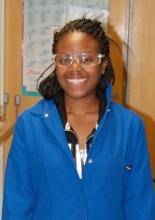
Major:
University:
Mentor(s):
Faculty Sponsor(s):
Faculty Sponsor's Department(s):
Project Title:
Project Description:
Gene therapy is an area of research that holds a promising future in the treatment of genetic disorders and acquired diseases. Although viral capsids are efficient vectors of DNA, they suffer from safety issues. An alternative to viral vectors are synthetic biologically inspired molecules capable of condensing and transporting DNA. The effectiveness of synthetic vectors is limited by their ability to gain entry into the target cell's nucleus for subsequent transcription. However, two peptide lipid molecules RGD-peptides and NLS-peptides aid in the recognition of the CL-DNA complex by plasma and nuclear membrane surface proteins of the target cell, respectively. Our goal is to study the effectiveness of the NLS (nuclear localization sequences) peptide which can transport materials across the nuclear membrane. To characterize the efficiency of NLS, we use a transfection efficiency assay (quantitatively measures gene expression) and fixed-cell and nucleus imaging which allows us to directly observe whether lipid-DNA nanoparticles enter the nucleus. Currently, we are investigating three variations of CL-DNA nanoparticles which contain RGD-lipid, NLS-lipid, or both. Our experiment is as follows; CL-DNA nanoparticles are incubated with a human prostate cancer cell line (PPC-1), live cells are imaged using fluorescence microscopy, and finally, nuclei are isolated from the cells for direct imaging. Transfection efficiency was then analyzed for all CL-DNA nanoparticles described above. Results from our in vitro and cell-free studies revealed that nanoparticles containing only NLS-lipid suffer from low uptake but show strong adhesion to nuclei in cell free systems.
